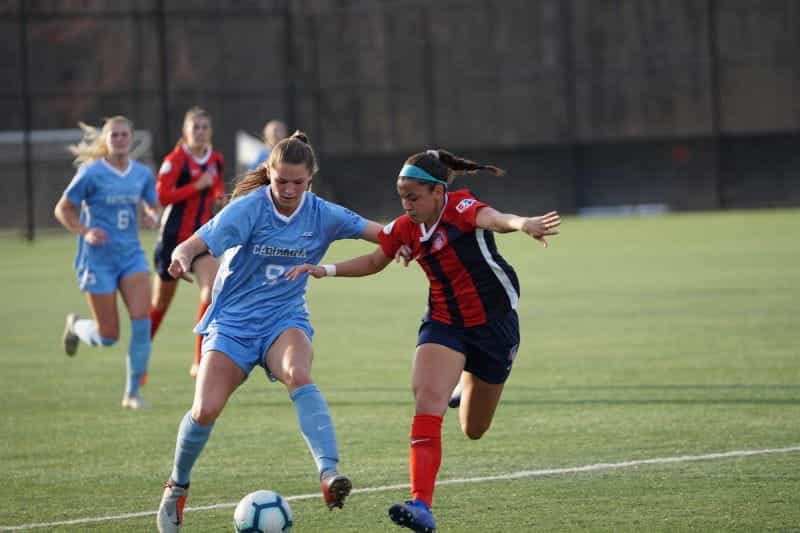Spanish Women’s Soccer Faces Tough Decisions
In Spain last Thursday, the country’s women’s soccer team shocked the sports community by emailing identical statements to the soccer federation declaring they would not play for the team under its current coach. The women cited concerns over their “emotional state” and health, explaining that playing under this coach would cause significant pain. Though they clarified they did not expressly ask for their coach to be removed, they would not play under him.

Spain’s women’s soccer team has refused to play until action is taken regarding its current coach. Jeffrey F Lin/Unsplash
What are the players asking for?
The 15 players who sent the joint letter did not specifically ask for coach Jorge Vilda to be fired. Instead, they asked for the federation and Vilda to agree to “a clear commitment to a professional project with attention paid to all the aspects needed to get the best performance of this group of players” as reported in AP News.
They went on to say that, “We understand that it is not our job in any case to choose a coach, but it is our job to express in a constructive and honest way what we consider can improve the performance of the group,” in a further statement shared to social media. Though the players insist they have not asked for Vilda to be fired, the federation has gleaned this meaning from their actions.
In turn, the federation has chosen to stand by the coach, despite how the women’s team has publicly scrutinized him in the past. The federation’s response statement said very clearly that they would not allow themselves to be pressured by a player or team to drop or hire any particular coach.
What caused the players to protest?
Of the 15 that sent the email, one is goalie Sandra Paños, another is midfielder Aitana Bonmatí, and another is Patri Guijarro, the women’s team’s third captain. Though not all of the players sent the email themselves, some joined by sharing the social media statement last Friday, like Alexia Putellas who recently won the Ballon d’Or, a prestigious international award presented by France Football magazine.
Several players joined a news conference earlier in September to air their grievances against coach Vilda. Again, not all of those present at the conference sent the email, but it is clear that the problems with Vilda are far-reaching within the team.
During the conference, it became clear that much of the trouble stemmed with the recent European Championship, the quarterfinals of which took place in July. The team lost the quarterfinals to England (the English team eventually won the Eurocup). Spain’s team asserted that they felt they could have performed better.
Paredes called the team “ambitious” and said, “We believe that various internal aspects (of the team) must improve.” Though she was not specific about what those internal aspects were, the involvement of the coach in this discussion insinuates that players were unhappy with choices he made and blame him in part for the disappointing results they had in the Euros.
However, at the time, no player used the language of the letter; in other words, none evoked the idea of mental health or emotional turmoil being a cause of not being able to play further under Vilda’s leadership. The Spanish media has taken this as a sign that there may be more to the move by these 15 players than just the situation created during the Eurocup, but until further statements are made it is impossible to say what it could be.
The federation’s response: Supporting Vilda
Ana Álvarez, who is in charge of women’s soccer for the Spanish federation, again stood firmly on the side of Vilda and quashed any rumors of inappropriate behavior or abuse. In fact, Vilda’s predecessor Ignacio Quereda was removed after strong demand by players in 2015. Later, ex-players said Quereda had used inappropriate language to psychologically abuse them over his three decades as coach.
Álvarez maintains that Vilda has done nothing of the sort, and that this kind of accusation is incredibly serious and would be addressed. Therefore, the federation continues a stalemate with the protesting players. The players will be allowed to play again only if they “ask for forgiveness” from the federation, and perhaps Vilda.



